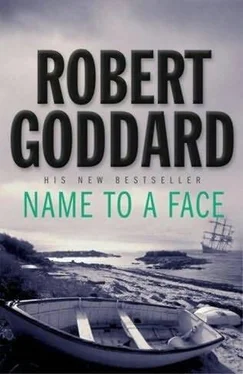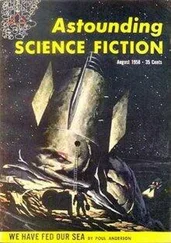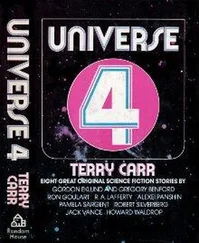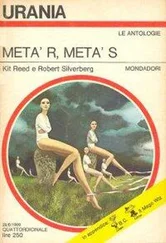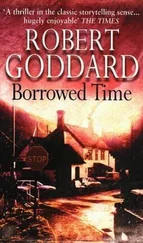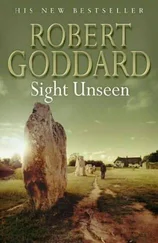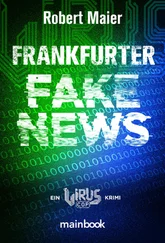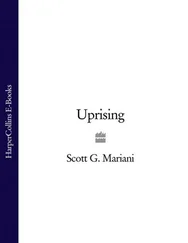“Is there any more to be said?”
“Oh, one thing, yes.” Shelkin sighed heavily. “You may as well know. I sense you won’t be satisfied until you do. Miss Foxton came back to see me, on her own, a few days after her visit with Miss Gashry She demanded to know what justification I had for warning her off. I was in no position to give her a satisfactory answer, of course. The post had just arrived that morning and was lying here on my desk, opened but unread. I offered her a cup of coffee in an attempt to lighten the mood. I keep the kettle over there.” He gestured towards the last filing cabinet in the row, on which stood a tray bearing cups and saucers, coffee jar and milk bottle, next to an electric kettle. “While my back was turned, she stole one of the letters. It must have caught her eye while we were talking. And she must have moved very quickly.” He sighed. “Never trust a journalist.”
“How do you know she stole it?”
“Her father returned it to me after her death. He’d found it amongst her possessions. He naturally had no idea how she’d come by it. Borrowed, he assumed. But no. It was stolen. And that morning when she came here has to have been when it happened.”
“Who was the letter from?”
“A man called Norman Buller, whose ancestor the Reverend William Buller was executor of Francis Gashry’s will. Mr. Buller had come across my article in the Huguenot Association journal mentioning Gashry while researching his family tree on the Internet. The Reverend Buller’s brother John was joint MP with Gashry for East Looe-multi-seat constituencies were common in those days-and hence a close political associate. Mr. Buller had a cache of papers left by Gashry at his death and preserved by his executor. He wondered if I wanted to look through them. Obviously, I did. They might conceivably have included a complete version of Gashry’s report on the Shillingstone affair. There would have been two copies, one for Wager’s personal attention, one for the file. Wager’s copy could plausibly have wound up in Gashry’s possession. So, I hastened to Mr. Buller’s door. Miss Foxton had been there before me, as I feared, passing herself off as my assistant. The papers were humdrum stuff: letters from John Buller about constituency management and details of Gashry’s subscriptions to government loans. Hardly anything related to his Admiralty career. There were a great many documents, however, and Mr. Buller didn’t claim to have read all of them. From which followed, of course, the dismal conclusion that he couldn’t be sure Miss Foxton hadn’t removed any during her visit. She’d been left alone with the papers for an hour or more, apparently. He insisted he’d have noticed any attempt on her part to remove some of them, but I wasn’t convinced.”
“If she had taken something, surely it would have been discovered amongst her possessions after her death, like Buller’s letter.”
“My thought exactly. But her father insisted there was nothing else and his distressed condition discouraged me from persisting with my enquiries. I did contact an amateur historian who’d been with Miss Foxton at the time of her accident, but-”
“John Metherell.”
“Yes. You know him?”
“I’ve met him. He’s writing a book about the wreck of the Association. ”
“So I believe. Anyway, he couldn’t help me. Miss Foxton’s discussions with him had been limited to the Association story. The friend Miss Foxton had been staying with on St. Mary’s said Mr. Foxton had taken everything of his daughter’s away with him. It was a dead end.”
“You gave up?”
“I had to. Just as you’ll have to give up trying to find the Tozers’ ring. Eventually.” Shelkin lit another cigarette and inhaled cautiously. “When the time comes, you’ll know. Believe me. I speak from experience.”
I often attend evensong at the cathedral, Mr. Harding. I did so on Sunday. And I spoke to the dean afterwards. So, I think you’ll agree I have an unimpeachable alibi for the night of the burglary at Heartsease. Even supposing I need one, which, in the absence of any credible motive, I don’t suppose I do, do you?”
Shelkin’s parting shot had hit home. Standing on the platform at Newark North Gate station waiting for the connecting train to London late that cold afternoon, Harding asked himself what, if anything, he had gained from his trip to Lincoln. Considering he had not really wanted to go in the first place, the answer was dismally little. He did not believe Shelkin had either the Tozers’ ring or the missing pages from the Gashry report. Kerry Foxton might have stolen a complete copy of the report from Norman Buller, but it was much more likely she had not. Besides, as Shelkin had said, the contents of those missing pages could hardly matter now, all of two hundred and seventy years later.
Hayley rang as the train was nearing King’s Cross. And Harding made no effort to conceal his pleasure at hearing from her.
“I’m going to come down on the sleeper, even if there isn’t a berth. Sitting up all night’s no hardship if I get to see you in the morning.”
“I’ll find out what time it gets in.”
“Early would be my guess. You don’t have to meet me at the station.”
“But I want to. So, that’s settled. Learn anything useful in Lincoln?”
“Not really.”
“No fresh leads?”
“None I need to follow. Which is a blessing, really. It means I can stop dashing around the country on Barney’s behalf and start…” He hesitated, unsure how to continue, for the simple reason that he had no clear idea of what was to happen next in his life.
“Start what, Tim?”
“We’re going to have to talk about that.”
“Yes. I guess we are. And you know something? I’m looking forward to it.”
“So am I.”
“Until tomorrow, then.”
“Yes. Until tomorrow.”
“’Bye.”
“’Bye, Hayley”
“Love you.”
“Love you too.”
The sleeper rolled out of Paddington just before midnight. There had turned out to be plenty of vacant berths and Harding had a cabin to himself. To his subsequent surprise, given the many problems he was beset by and the many more likely to be created by allowing himself to fall in love with Hayley, he slept like a baby.
It was a grey damp morning in Penzance. Harding could not see Hayley waiting for him on the platform as he left the train, but he was at first undismayed. She might easily have overslept. He checked the station buffet and wandered up and down by the taxi rank. The other sleeper passengers had mostly dispersed by now. Anxiety began to creep over him.
Then a woman called his name. “Tim.” She was moving towards him from the direction of the car park. Harding did not recognize her. She was slimly built, with straw-coloured hair tied in a ponytail and an open, smiling expression. She wore a raincoat over the sort of uniform suit worn by staff in a bank or building society. “You’re Tim Harding?” she called as he drew closer.
“Yes.”
“Jeanette Taylor. Hayley asked me to meet you.”
“Ah. Right.” He smiled. “She’s been staying with you, hasn’t she?”
Jeanette did not return the smile. She looked puzzled. “No,” she said, with a tight little shake of the head.
“You’re in her judo class.”
“Yes. But she hasn’t been staying with me.”
“She phoned me… from your cottage in Mousehole… on Tuesday evening.”
“No, no. I drove her up to Newquay Airport on Tuesday. By the evening, she’d have been on her way to Spain.”
“Spain?”
“On holiday. A spur-of-the-moment thing, she said. She asked me to meet you here this morning and apologize for letting you down. You were hoping to see her while you’re here, apparently.”
Читать дальше
